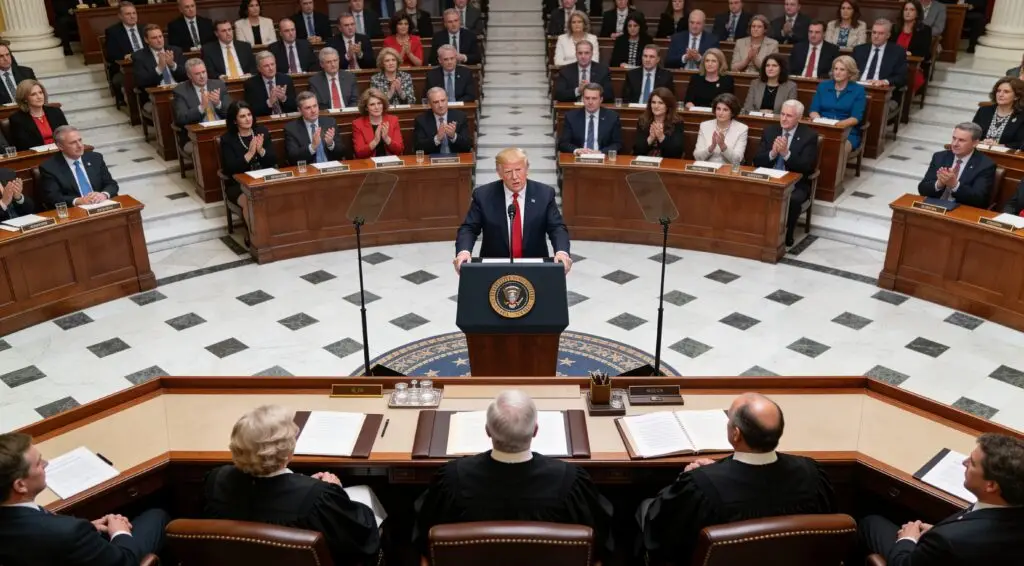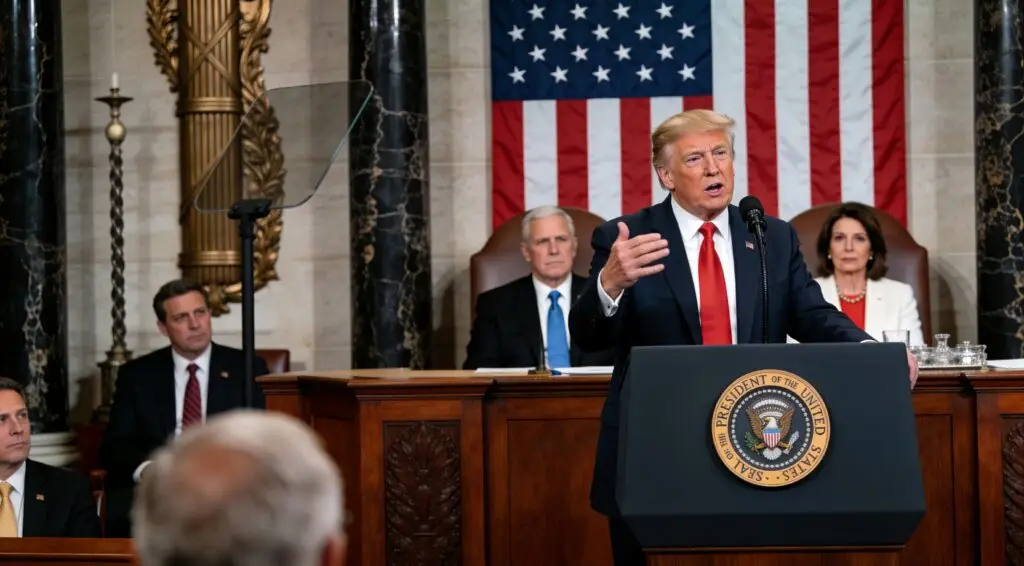A Direct Challenge to a Landmark Decision
Ten years after the U.S. Supreme Court’s landmark decision in Obergefell v. Hodges extended marriage rights to same-sex couples nationwide, the justices are now faced with a direct challenge to that precedent. For the first time since 2015, the court has been formally asked to overturn the ruling. The appeal comes from Kim Davis, the former Kentucky county clerk who famously refused to issue marriage licences to gay couples on religious grounds, a stance that led to her being jailed for six days.
Davis is appealing a substantial jury verdict against her, and her legal team is using this case to argue that the Obergefell decision was “egregiously wrong” and must be corrected. This petition is a significant moment in the ongoing national debate, as Davis is considered one of the only individuals with the legal standing to bring such a direct challenge to the precedent. The case will force the court to confront an issue that many believed had been settled, reopening a contentious political and social discussion.
The Legal Argument for Overturning Obergefell
Kim Davis’ legal team, led by attorney Mathew Staver, is making a two-pronged argument in their petition. First, they argue that Davis’s First Amendment rights, specifically the free exercise of religion, should immunise her from personal liability for refusing to issue the marriage licences. This argument seeks to protect individuals from legal repercussions when their job duties conflict with their religious beliefs.
More fundamentally, the petition claims that the high court’s majority opinion in Obergefell, which extended marriage rights under the 14th Amendment’s due process protections, was a “legal fiction.” Staver’s legal theory directly attacks the constitutional foundation of the landmark ruling, calling for the court to revisit the decision and correct what he believes was a significant judicial error. The case is a direct test of the limits of religious freedom and a new challenge to the legal principles that underpin the right to same-sex marriage.
The Political and Social Landscape
The appeal to the Supreme Court comes at a time of renewed political and social debate over same-sex marriage. Since the Obergefell decision in 2015, which extended marriage rights to all couples nationwide, conservative opponents have been pursuing a campaign to reverse the precedent. At the time of the ruling, 35 states had bans on same-sex marriage, and only eight had laws explicitly allowing it.
Today, advocacy groups have noted that at least nine states have introduced legislation aimed at blocking new marriage licences for LGBTQ+ people or passed resolutions urging the Supreme Court to reverse the ruling. This is not just a political issue; it is a social one as well. A recent Gallup poll indicates that while a majority of Americans still support equal marriage rights, that support has plateaued since 2020. Among Republicans, support for same-sex marriage has notably dipped over the past decade, suggesting that the issue remains a powerful and divisive force in American politics.
Read More: UK Politics: Protests Mount Against Palestine Action Ban
A Renewed Campaign to Reverse Precedent
Davis’s petition is part of a broader, renewed campaign to reverse legal precedent and allow each state to set its own policy on same-sex marriage. This campaign has gained momentum from the Supreme Court’s decision in 2022 to overturn Roe v. Wade, which established that the Constitution does not confer a right to abortion. The Southern Baptist Convention, for example, the nation’s largest Protestant Christian denomination, recently voted to make the “overturning of laws and court rulings, including Obergefell v. Hodges,” a top priority.
This concerted effort by various conservative and religious groups signals a coordinated push to challenge the legal basis of the ruling. The appeal is seen as a key part of this strategy, with the hope that the court’s current conservative majority will be receptive to the arguments. The debate is no longer about whether same-sex marriage is legal but whether it is constitutionally protected, a distinction that has significant implications for the future of LGBTQ+ rights in the U.S.
The Thomas Concurrence and the Abortion Precedent
A key argument in Davis’s petition relies on the language of Justice Clarence Thomas’ concurrence in the 2022 decision that overturned Roe v. Wade. In that concurrence, Thomas explicitly called for the court to reconsider all of its substantive due process precedents, including Griswold, Lawrence, and, most importantly for this case, Obergefell. Thomas’s call to action is seen as a direct invitation to challenge these landmark decisions, and Davis’s petition is a clear response. This legal strategy seeks to connect the abortion precedent to the issue of same-sex marriage, arguing that the court’s reasoning in one case should be applied to the other.
While legal experts consider Davis’s bid a long shot, the fact that a sitting justice has publicly called for a reconsideration of the ruling gives the petition a level of legitimacy it would not otherwise have had. This connection to the abortion precedent ensures that the issue of same-sex marriage will remain a central point of legal and political debate for the foreseeable future.
The Supreme Court’s Conservative Majority and Potential Outcome
Since the Obergefell decision a decade ago, the makeup of the Supreme Court has shifted dramatically, with three appointees from President Donald Trump creating a 6-justice conservative supermajority. This new dynamic is a key factor in Davis’s appeal. However, legal experts are divided on whether the court will take up the case. Some, like conservative constitutional scholar Josh Blackman, predict that many of the court’s conservative members would prefer to see challenges to Obergefell “percolate” in lower courts before revisiting the issue.
Legal analyst Sarah Isgur adds that there is “no world in which the court takes the case as a straight gay marriage case,” suggesting it would have to be presented under a different legal theory. The court is expected to formally consider Davis’s petition this fall. If it is accepted, oral arguments would likely be scheduled for next spring, with a decision by the end of June 2026. However, the court could also simply decline the case, allowing the lower court ruling to stand and effectively avoiding the request to revisit the precedent.
The Lasting Impact of the Same-Sex Marriage Debate
Regardless of the Supreme Court’s decision, the filing of this petition has a lasting impact on the legal and political landscape. It serves as a reminder that even landmark decisions are not immune to challenges and that the fight for LGBTQ+ rights is far from over. The existence of the 2022 Respect for Marriage Act ensures that a potential overturning of Obergefell would not invalidate existing marriages, but it would create a new era of legal and social uncertainty.
The petition and the broader campaign it is a part of will continue to fuel public debate and political action. With an estimated 823,000 married same-sex couples in the U.S. and a significant number of them parenting children, the issue is not a theoretical one. The outcome of this debate, whether it happens now or in the future, will have profound implications for the lives of millions of Americans and will ultimately shape the future of civil rights in the United States.















